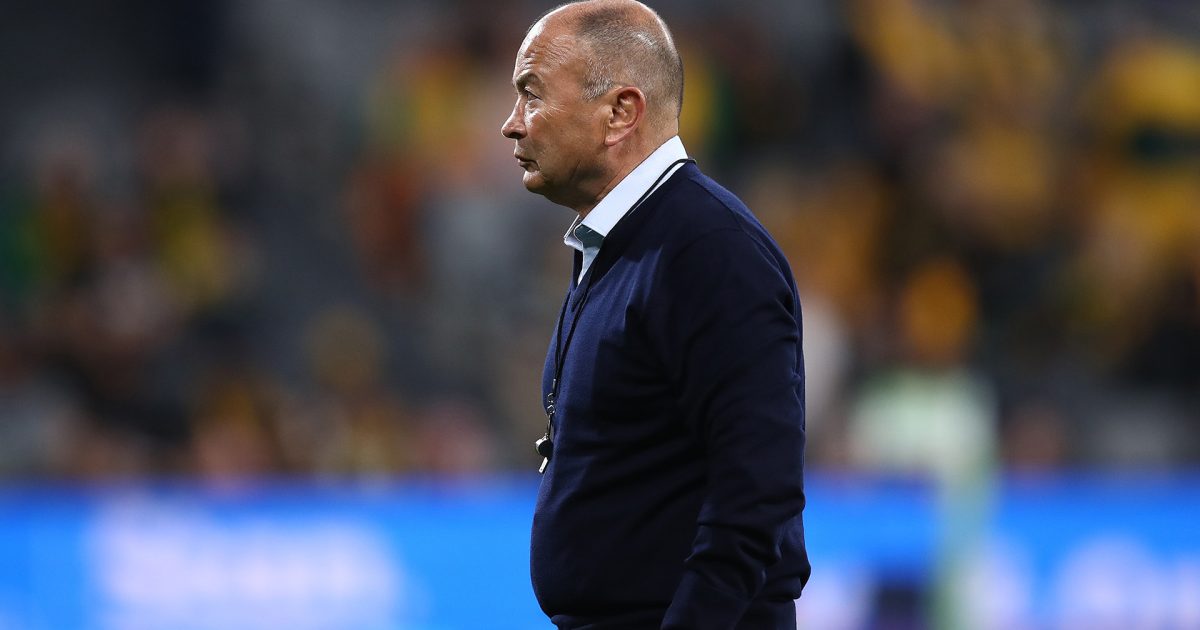What's killing the Wallabies: 'I haven't seen a ruck stat this low at International rugby'

It’s been a rough start for Eddie Jones’ Wallabies, falling to two unflattering defeats in their opening two matches under the new head coach.
Expectations for the team were, and remain, a tale of two extremes with a myriad of factors to consider. Nevertheless, Jones continues to do what he does best, talk his team up and his latest headline-grabber, claiming the All Blacks should “look out” in their upcoming Test at the MCG is doing little in the way of comforting a nation that just wants to see some results.
Jones was only ever going to have five Tests before the World Cup kicked off to get his team aligned and ready to face Wales, Fiji, Georgia and Portugal in Pool C. Now two games into that preparation, the sample size has offered more concern than hope.
The Aotearoa Rugby Pod gave their insights on what is troubling the Wallabies so far and shared their concerns over the complexity of the game plan and the potential free-for-all that has been presented as a selection policy.
The consequences of those elements are a lack of clarity on the field and busy minds that aren’t in the best space for critical decision-making.
Of chief concern was how those elements were disrupting the team’s efficiency around the ruck.
“Their attacking breakdown, (you need) tight pods, clarity. ‘I’m carrying, you’re cleaning’,” Former All Black James Parsons said.
“I haven’t seen a ruck stat this low at international rugby. 88%, they won on their own ball at ruck time. Argentina were at 90%, the All Blacks were at 97%, the Springboks were at 97%.
“I’ve never seen it go into the 80s in terms of losing your own attacking breakdown, so there’s some serious work to do. I do think you can put that down – because it’s not a skillset thing – there’s a lot of new systems.
“To me, it looks so cluttered and so much is going on in terms of the decisions they’re making, and then they’re chasing their tail.”
It wasn’t all doom and gloom though, the team’s defence racked up an impressive tally at an impressive success rate.
“On the flip side for them, defensively, 91% (tackle completion), and they made Argentina work and work and work. In an area that shows attitude, I think you can have confidence that they’re all there fronting up.
“On attack, they can be a bit better and around that defensive breakdown they can be a little bit smarter around when there’s an opportunity and when there’s not. Because they should trust their defence, 91% making over 200 tackles is outstanding at international level.”
Parsons added a specific example of poor decision-making, recalling a Wallabies player being penalised for playing the ball on the ground while laying in front of the ref. To the podcast’s panel, it was further evidence of the players being focused on fighting for their positions while trying to execute a whole new system and “overtrying” amongst it all.
The remedy, in the pundits’ eyes, was to “lean up the menu”. In other words, simplify the game plan so the players are more clear on their roles and can be more present, just playing the game as it happens in front of them.
Despite the team’s early struggles, there was plenty of optimism around what the team can achieve if the attack is cleared up and systems are better established, given the intent of the defence.




























